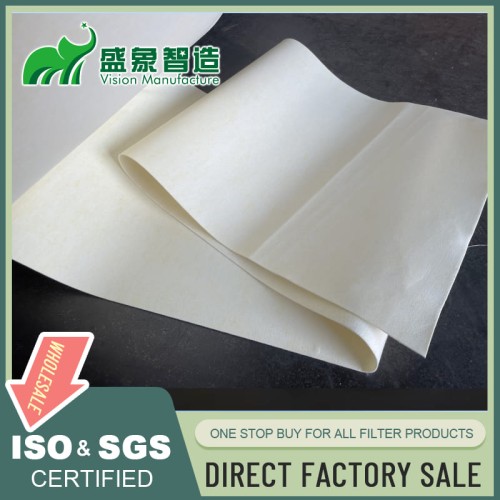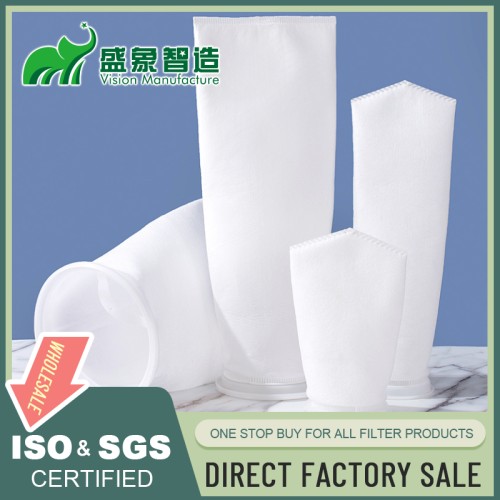
Filter Bag Testing: Unveiling the Key to Filtration Efficiency
I. Introduction
In the realm of filtration, the performance of filter bags is critical for maintaining clean and contaminant-free environments. This article delves into the often-overlooked aspect of filter bag testing, shedding light on why it is a pivotal component of filtration system maintenance.
|
Heading |
|
I. Introduction |
|
II. Importance of Filter Bag Testing |
|
III. Types of Filter Bag Tests |
|
A. Leak Testing |
|
B. Particle Retention Testing |
|
IV. DIY Filter Bag Testing Techniques |
|
V. Professional Filter Bag Testing Services |
|
VI. Signs Your Filter Bags Need Testing |
|
VII. Benefits of Regular Filter Bag Testing |
|
VIII. Common Misconceptions About Filter Bag Testing |
|
IX. Ensuring Accurate Test Results |
|
X. The Future of Filter Bag Testing |
|
XI. Conclusion |
|
XII. FAQs |
II. Importance of Filter Bag Testing
Filter bag testing serves as a proactive measure to assess the integrity and efficiency of filtration systems. It aids in identifying potential issues before they escalate, ensuring the consistent delivery of high-quality filtrate.
III. Types of Filter Bag Tests
A. Leak Testing
One of the fundamental tests, leak testing, determines whether the filter bag allows any undesired particles to pass through. This test is crucial for preventing contamination.
B. Particle Retention Testing
Examining a filter bag's ability to retain particles of various sizes ensures it meets the required standards for filtration efficiency.
IV. DIY Filter Bag Testing Techniques
Empower yourself with the knowledge to perform basic filter bag tests at home. Understanding your filtration system's health is the first step toward optimal performance.
V. Professional Filter Bag Testing Services
For a comprehensive assessment, professional filter bag testing services offer advanced analysis, ensuring a thorough examination of your filtration setup.
VI. Signs Your Filter Bags Need Testing
Recognizing the signs that your filter bags may be compromised is essential. From reduced flow rates to visible wear, identifying these indicators prompts timely testing.
VII. Benefits of Regular Filter Bag Testing
Regular testing not only extends the life of filter bags but also enhances the overall efficiency of your filtration system. It is a cost-effective approach to preventive maintenance.
VIII. Common Misconceptions About Filter Bag Testing
Dispelling common myths around filter bag testing clarifies its importance, encouraging proactive maintenance practices.
IX. Ensuring Accurate Test Results
Understanding the factors that influence test results is crucial for accurate assessments. Factors such as temperature and pressure can impact the outcome.
X. The Future of Filter Bag Testing
With technological advancements, the future of filter bag testing holds promise for more sophisticated methods, providing even greater precision in evaluating filtration systems.
XI. Conclusion
In conclusion, filter bag testing is the linchpin in sustaining filtration efficiency. By adopting regular testing practices, industries and individuals alike can ensure the longevity and effectiveness of their filtration systems.
XII. FAQs
1. How often should I test my filter bags?
For optimal performance, conduct tests at least twice a year, or more frequently in high-demand environments.
2. Can I reuse filter bags after testing?
It depends on the test results. Some filter bags can be cleaned and reused, while others may need replacement.
3. Are DIY filter bag tests reliable?
DIY tests offer basic insights, but professional testing provides a more thorough and accurate assessment.
4. What is the cost of professional filter bag testing?
Costs vary, but the investment is outweighed by the potential savings from avoiding system failures.
5. Can filter bag testing prevent system breakdowns?
Yes, regular testing helps identify issues early, preventing costly breakdowns and ensuring continuous operation.
Additional Resources:
· U.S. Environmental Protection Agency (EPA)
· World Health Organization (WHO)
· Occupational Safety and Health Administration (OSHA)


